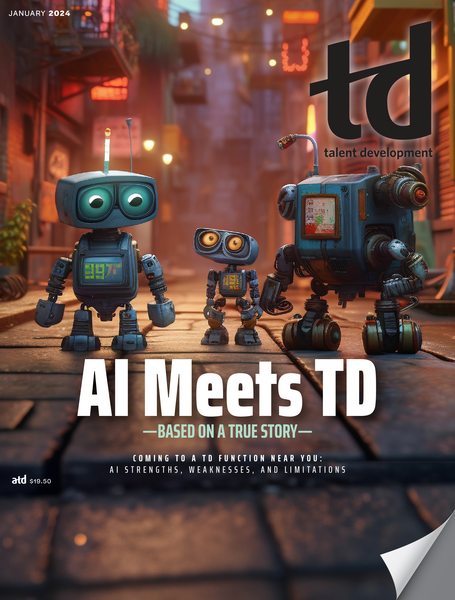TD Magazine Article
Your AI Questions, Answered
Generative AI augments the L&D function; it doesn’t replace it.
Tue Jan 02 2024
Generative AI augments the L&D function; it doesn't replace it.
Artificial intelligence has become a zeitgeist. That doesn't mean, however, that society genuinely understands the technology. In "Unlocking the Power of AI," Myra Roldan provides a primer on AI, beginning with a description. AI consists of two main components: machine learning, which powers the systems to function, analyzes data, and makes predictions; and deep learning, which provides the data that trains machine learning models to recognize patterns.
Traditional AI is designed to solve problems, Roldan explains, while generative AI creates new content based on the data it has consumed (for example, ChatGPT).
Generative AI is most intriguing and holds the greatest promise for L&D, creating content based on prompts from industry professionals. Such prompts may include "generate a list of potential learning objectives," "write a learning plan," or "provide recommendations for improvement."
There are many myths circulating L&D's relationship with AI—for example, the idea that AI will make learning content fully personalized. While it is true that AI can help with personalization, it will require nuanced human design and experience for training to be tailored to context. Another myth is that AI will replace human tutors and coaches. The social-emotional connection of human teachers, however, is vital for learner success. AI tutors are narrow supplements, not substitutes.
Interested in experimenting? Start small, involve stakeholders, and evaluate rigorously, Roldan advises.
These tips were adapted from the January 2024 issue of TD at Work. Learn more at td.org/TDatWork.
You've Reached ATD Member-only Content
Become an ATD member to continue
Already a member?Sign In

